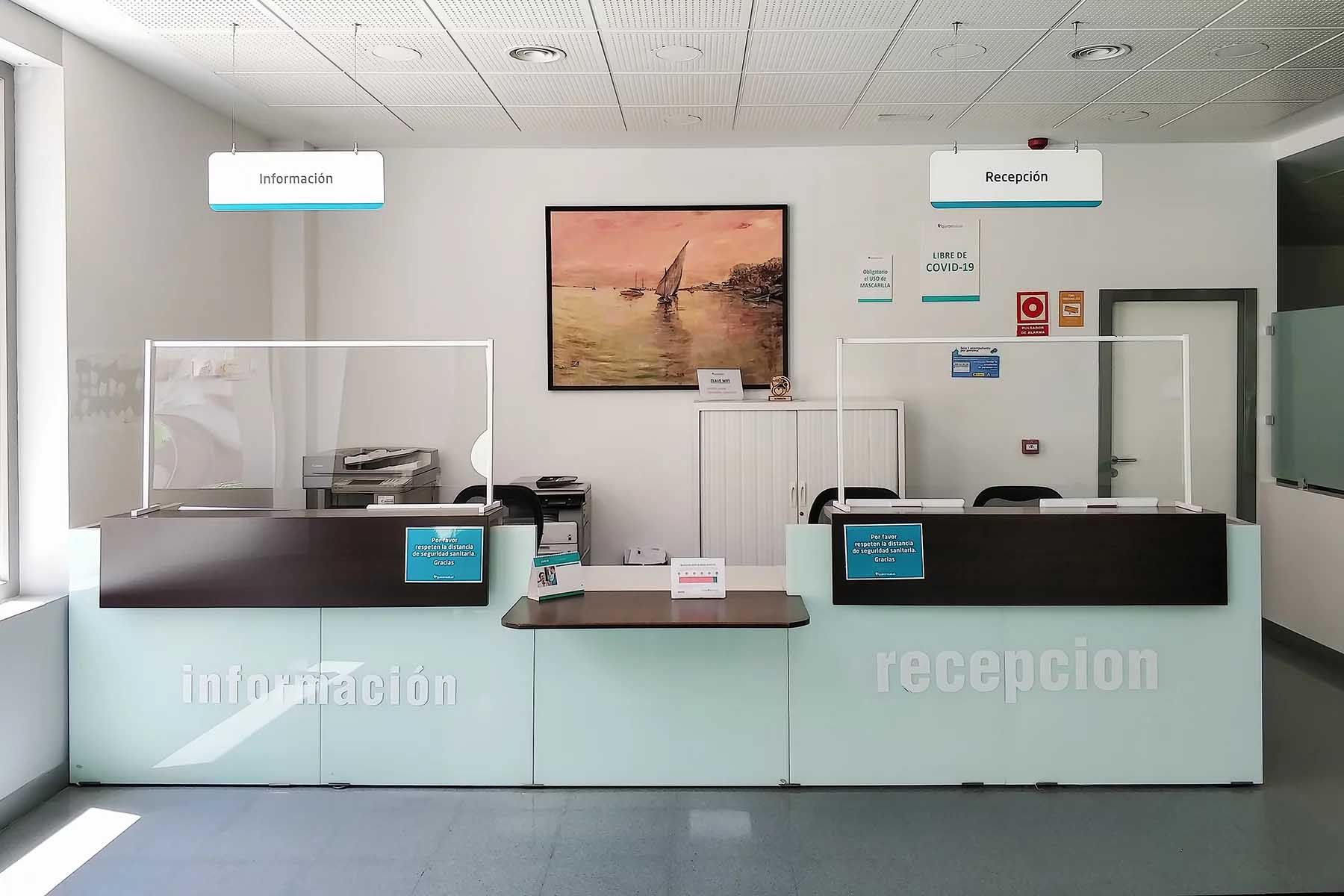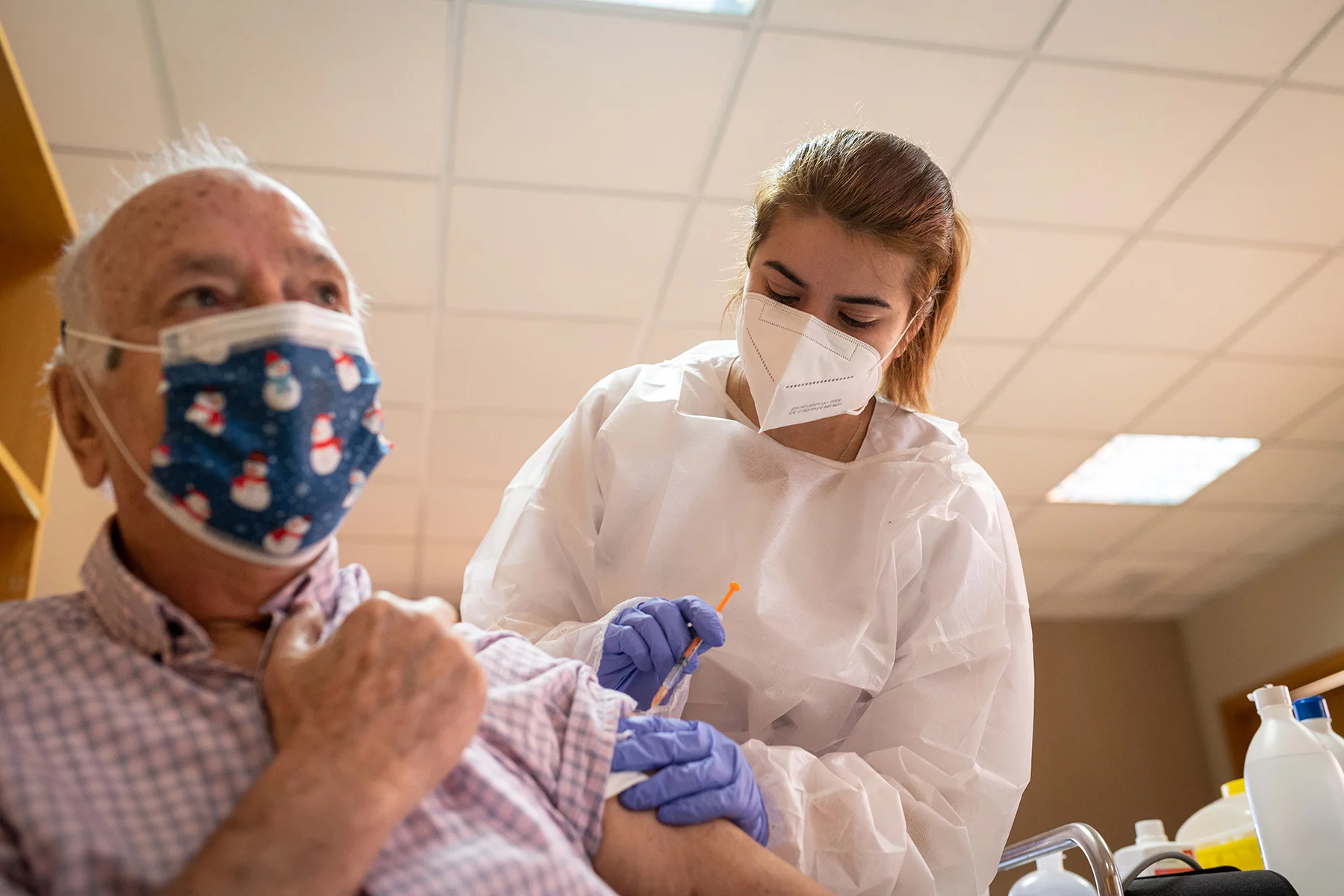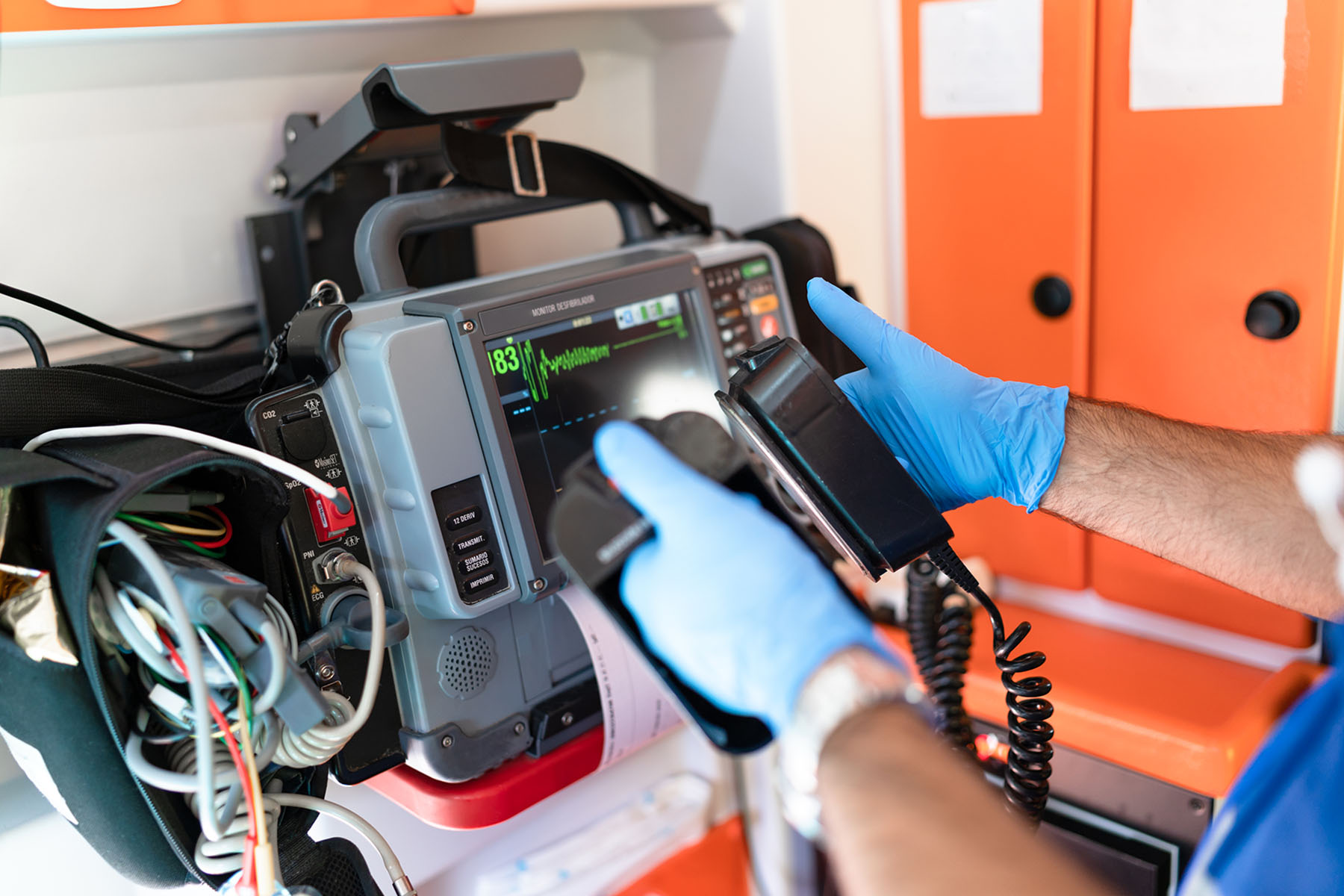Spain’s universal healthcare system ensures all residents have access to quality medical care. Whether you need a general practitioner or a medical specialist, this article explains how to find a doctor, register, book appointments, and what’s covered, so you know exactly what to expect.
Continue reading for the following information:
- Overview of doctors in Spain
- Who can see a doctor in Spain?
- How to find a doctor near me in Spain?
- How to see a doctor in Spain: step-by-step
- How much do doctor visits cost in Spain?
- Overview of Spanish doctors’ services
- How to complain about a doctor in Spain
- Practical medical words in Spanish
- Useful resources
Cigna Global
Enjoy peace of mind while living in Spain with Cigna Global’s long-term international health insurance plans (12+ months). Get tailored coverage, direct billing with many providers, complex case management, and global care on demand, with access to a network of 1.5+ million doctors, specialists, and therapists.
Overview of doctors in Spain
Spain has a universal healthcare system that covers nearly 99% of its residents, including expats. Funded through a combination of public and private health insurance, this ensures that everyone can access a broad range of medical services, including doctor visits (médico) and emergency care.
According to the Instituto Nacional de Estadística (INE), Spain has relatively many doctors compared to the rest of the EU. In 2023, there were 6.2 physicians per 1,000 residents (EU average in 2021: 4.1). That said, the number of doctors can vary a lot depending on the location. For example, in 2023, the autonomous regions of Aragon, Asturias, and Madrid had roughly 7.3 doctors per 1,000 patients, while Melilla had just 3.6.
Around one-fifth of these (21%) are family doctors, which translates to 9.5 GPs per 10,000 people (Eurostat, 2022).

Doctors must be registered with the local Medical Association (Colegio de Médicos) of their region. These associations are overseen by the Spanish Medical Colleges Organization (Organización Médica Colegial de España – OMC).
Family doctors or GPs in Spain
Family doctors or general practitioners (GPs – médicos de familia) are usually your first stop for most health issues in Spain. In the public system, you’re assigned a GP at your local health center (centro de salud), though you can request a change. If you want, you can also visit private GPs (médicos generales privados), who offer more flexibility and shorter wait times.
Public clinics are typically open from 08:00 to 15:00 on weekdays, while practices may have extended or evening hours. Most medical offices are closed on weekends and public holidays.
GPs handle routine medical concerns, carry out basic tests, and provide referrals to specialists when needed. They also keep track of your medical records and coordinate follow-up treatments.
Medical specialists in Spain
If you need more specialized care, your next step is usually a médico especialista (medical specialist). From dermatologists to neurologists, Spain’s broad network of specialist doctors is wide-ranging and easy to access using public or private health coverage.
Medical specialists usually work in hospitals or private clinics. Opening hours can vary significantly depending on the doctor. Public doctors offer consultations between 08:00 and 15:00, Monday to Friday, whereas private physicians typically work from 09:00 to 20:00, with three hours in between for lunch.
In the public system, you need a GP referral (volante) to see a specialist. Privately insured patients can often schedule an appointment directly without a referral.
Who can see a doctor in Spain?
Everyone can access medical care to some degree or another, including asylum seekers, refugees, and tourists. However, for non-urgent medical help, you have to pay large out-of-pocket costs or have health insurance coverage – either public, private, or both.

Our article on health insurance in Spain covers the topic (and costs!) in more detail, but basically, there are both public and private doctors. While they both offer the same levels of quality care, the difference is in the insurance coverage and availability.
For example, private doctors and specialists only see privately insured patients. So, if you just rely on public insurance, you cannot get any treatment. And, while public consultations are free with public health insurance, they often have longer waiting times and more rushed exams. Private doctors, on the other hand, cost more but have more flexible appointment scheduling and longer, personalized visits.
How to find a doctor near me in Spain?
If you are in a life-threatening situation, go to the nearest hospital emergency room (Departamento de Emergencias – ED). You can also call 061 for an ambulance or 112, which is the free pan-European number for any type of emergency.
But if your situation is less immediate (and more you looking for information), you can find public doctors and GPs listed on the government’s e-register, RegCess. For private doctors, you may use an online tool like Saludonnet. And if you’re uncomfortable speaking Spanish, websites like Doctorsa or Mobi Doctor list English-speaking doctors in Barcelona, Madrid, and elsewhere in Spain.
For medical issues outside regular opening hours, you can contact the on-call services (médico de guardia) on the regional health hotline. Availability varies; typical hours are from 15:00–20:00 or 22:00, Monday to Friday. In rural or smaller towns, doctors on duty can work all night as well (22:00–08:00). During weekends, on-call services are available from 08:00–20:00, though some are open 24/7.
How to see a doctor in Spain: step-by-step
Step 1: Register with your local doctor
Spanish residents must first register with their local doctor. It’s worth noting that doctors may offer both public and private consultations and treatments, so make it clear which coverage you require. You’ll be given a Charter of Rights and Obligations (Carta de Derechos y Deberes), which sets out your rights as a patient.

Step 2: Book a doctor’s appointment
Although some GPs accept walk-in patients, most require you to schedule an appointment in advance. You can do so with a quick phone call to the individual medical center or using an online service like Mobi Doctor. Specialists don’t do walk-ins unless it’s for urgent medical situations.
Wait times for public physicians can be long compared to those of private ones. You can generally expect to wait one or two days to see a GP and several weeks to see a specialist.
Step 3: Visit the health center
When you go to the scheduled appointment, make sure to bring your Health Card (Tarjeta Sanitaria Individual – TSI) and ID. This card proves that you’re insured and contains your health records. It also allows your doctor to upload any prescriptions for medications, should you need them.
If you don’t have health insurance, bring your wallet.
It is worth noting that some public doctors don’t speak English very well and may refuse to treat you without an interpreter (as it can double the diagnosis time without one). In larger cities, there may be an interpreter on staff (of course, with added costs), but in rural areas, you may need to bring one yourself.
Private hospitals and practices, on the other hand, almost always have English-speaking medical staff, and you won’t have any issue accessing healthcare.
How much do doctor visits cost in Spain?
Without proper health insurance, doctor or GP consultations cost around €45–70, depending on the services provided. You may also face additional charges for lab work, imaging, and prescriptions. Visits to specialists typically cost an average of €70–110+, also depending on the services provided.
Public health insurance covers all essential treatments, including doctor visits and specialist care. Some services, like prescription medications and medical aids, require a copayment (copago), depending on your income. For example, you can expect to pay 40–60% of the costs for prescriptions, unless you are a retiree; pensioners only pay 10% of their medication fees.
Of course, when you visit a private doctor, the costs may be higher.

Do I need health insurance in Spain?
Yes. Our article on Spanish health insurance explains everything in full detail, but as a quick summary:
- Public insurance is mandatory for all Spanish residents
- Statutory insurance covers most essential treatment, but not all. Patients will need to pay large out-of-pocket costs or take out private (top-up) insurance to cover it for them.
There are many private health insurers in Spain, and it’s worth shopping around to find the best deals. Aside from the home-grown health insurance funds, there are also international insurers who cater specifically to expats. These providers are ideal for residents who travel outside the country a lot and anyone who prefers expat-focused care:
Overview of Spanish doctors’ services
Prescription medications
If necessary, the doctor may prescribe you medication, which you can pick up from any pharmacy (farmacia) in Spain. You typically need to pay 40–60% of the costs yourself, depending on your income.
To find your nearest pharmacy, you can use any search engine or check the Farmaceuticos website. This site also has a search tool for finding out-of-hours emergency pharmacies (farmacias de guardia).

Medical tests in Spain
Doctors in Spain can perform several medical tests on location, such as blood and urine tests. While some test results are immediately available, others need to be analyzed by independent laboratories. In case of the latter, you will be given a referral to a local clinic.
How to complain about a doctor in Spain
Spain has several ways to file an official complaint about healthcare malfeasance. For example, you can fill out a complaints and claims form (hoja de reclamaciones) at your medical center or write a letter to the complaints department (Servicio de Atención al Usuario). You can also contact the patient care office (Oficina de Atención al Paciente) of your Regional Health Service (Servicio de Salud).
If this fails to resolve the issue, you can escalate your complaint to the National Ombudsman (Defensor del Pueblo).
It’s worth noting that all investigative proceedings are conducted in Spanish.
Practical medical words in Spanish
It is a good idea to have a phrasebook or a translator app on your phone in case you need to explain more complicated health issues. You’ll also want to remember some of these medical words in Spanish:
| English | Spanish |
| general practitioner | médico de familia |
| doctor’s office | consultorio médico |
| appointment | cita |
| pain | dolor |
| headache | dolor de cabeza |
| stomach ache | dolor de estómago |
| back pain | dolor de espalda |
| fever | fiebre |
| cough | tos |
| prescription | receta |
| painkiller | analgésico |
Useful resources
- Ministry of Health – official government website with information on Spanish healthcare
- Regional Health Service – official government website that links to all Regional Health Services in Spain
- RegCess – official government e-register listing all doctors and GPs in Spain











